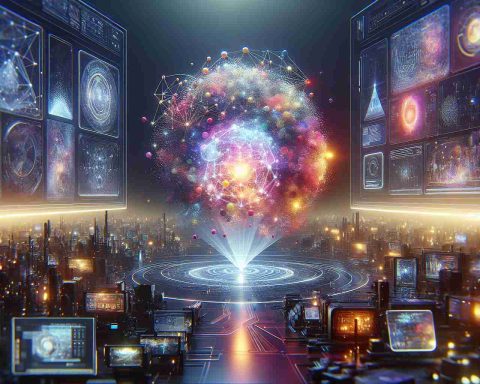Artificial intelligence is reshaping the landscape of Arabic media and creativity, streamlining processes and enhancing efficiency. This shift was emphasized during a recent international conference on media and creative translation in the digital era. Industry experts stressed the need to leverage AI technologies to produce innovative Arabic content while optimizing human effort.
Key figures in the field, including CEOs and journalists, highlighted the impact of AI on job markets and the evolving nature of work. While AI poses a threat to traditional roles, it also presents new opportunities for employment. Leaders called for a strategic focus on enhancing human resources to adapt to the rapid technological advancements in the industry.
Challenges surrounding the ethical and legal frameworks of AI implementation were also discussed. Academic professionals underlined the importance of regulations to govern ethical AI practices, safeguarding values and principles. It was suggested that a comprehensive examination of AI from legal and ethical perspectives is imperative to navigate the evolving landscape effectively.
Moreover, case studies demonstrated Egyptian endeavors in utilizing AI for media content development, showcasing its positive impact in conflict reporting and investigative journalism. AI’s role in enhancing storytelling and data-driven journalism was particularly highlighted, portraying a promising future for Arabic media with AI integration.
Revolutionizing Arabic Media with Artificial Intelligence: Expanding Perspectives
Artificial intelligence continues to revolutionize the Arabic media landscape, offering novel opportunities and challenges that shape the future of content creation and dissemination within the industry. As we delve deeper into the realm of AI integration in Arabic media, important questions arise, shedding light on crucial aspects that demand attention and consideration.
What are the new frontiers AI is opening in Arabic media, and how are they being explored?
AI technologies are propelling Arabic media into uncharted territory by enabling personalized content recommendations, real-time language translation, and user behavior analysis. The exploration of AI-driven data analytics tools allows media professionals to extract valuable insights from vast amounts of information, empowering them to tailor content to audience preferences effectively. Furthermore, AI-generated content, such as automated news articles and video summaries, is gaining traction, enhancing the speed and efficiency of media production processes.
What are the key challenges associated with the widespread adoption of AI in Arabic media?
One of the primary challenges lies in ensuring the transparency and accountability of AI algorithms used in content creation and distribution. The potential biases embedded in AI systems, if left unchecked, can perpetuate misinformation and undermine journalistic integrity. Moreover, the ethical implications of AI-generated content, particularly in sensitive topics like political reporting and social issues, raise concerns about the authenticity and reliability of information delivered to audiences. Striking a balance between harnessing AI’s capabilities and upholding journalistic standards remains a critical challenge for media organizations.
What are the advantages and disadvantages of leveraging AI in Arabic media?
The advantages of integrating AI into Arabic media are manifold, encompassing improved productivity, enhanced audience engagement, and data-driven decision-making. AI-driven solutions facilitate the curation of personalized content experiences, fostering deeper connections with viewers and readers. Additionally, the automation of routine tasks frees up human resources to focus on high-value creative endeavors, accelerating innovation within the industry. However, the overreliance on AI in content creation may diminish the human touch and diversity of perspectives, potentially homogenizing media offerings and limiting the scope of authentic storytelling.
In conclusion, the intersection of AI and Arabic media presents a dynamic landscape ripe with possibilities and challenges that necessitate a nuanced understanding and proactive approach from industry stakeholders. By addressing key questions, navigating uncertainties, and prioritizing ethical considerations, the fusion of AI technologies and media innovation can herald a new era of creativity and engagement in the Arabic media sphere.
For further exploration of AI’s impact on media industries globally, visit World Economic Forum.

















